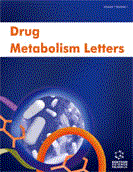Abstract
Aldehyde oxidase (AO) is a cytosolic enzyme that contributes to the Phase I metabolism of xenobiotics in human and preclinical species. We compared AO activity in cytosol and cryopreserved hepatocytes from human, monkey, rat and mouse livers to assess species differences. We also evaluated possible species differences in drug interactions using seven drugs known to inhibit human cytosolic AO i.e. raloxifene, perphenazine, menadione, maprotiline, ketoconazole, erythromycin, and estradiol. AO activity was measured using the formation of vanillic acid from vanillin. The rate of vanillic acid formation was 2 ± 0.2 nmol/min/mg in human liver cytosol and 0.79 ± 0.45 nmol/min/million cells in cryopreserved human hepatocytes. AO activity (Vmax,app) was highest in monkey and lowest in rat. Mouse liver cytosol had the lowest Km,app (1.44 ± 0.16 µM) and highest intrinsic clearance (8.97 ml/min/mg) and rat liver cytosol the highest Km,app (10.9 ± 1.2 μM) and lowest intrinsic clearance (0.47 ml/min/mg). There was a 4.25-fold difference in AO activity between the 5 human hepatocyte preparations. Drug interaction studies with the seven marketed drugs revealed marked species-specific inhibition. Our data indicates major differences in the rate of AO metabolism, and inhibition of AO across species, indicating that results from animal studies cannot be safely extrapolated to humans. Cryopreserved hepatocytes and cytosolic fractions from animals and humans provide qualitatively similar data within the species.
Keywords: Aldehyde oxidase, cytosole, cryopreserved hepatocytes, cross-species
 41
41














